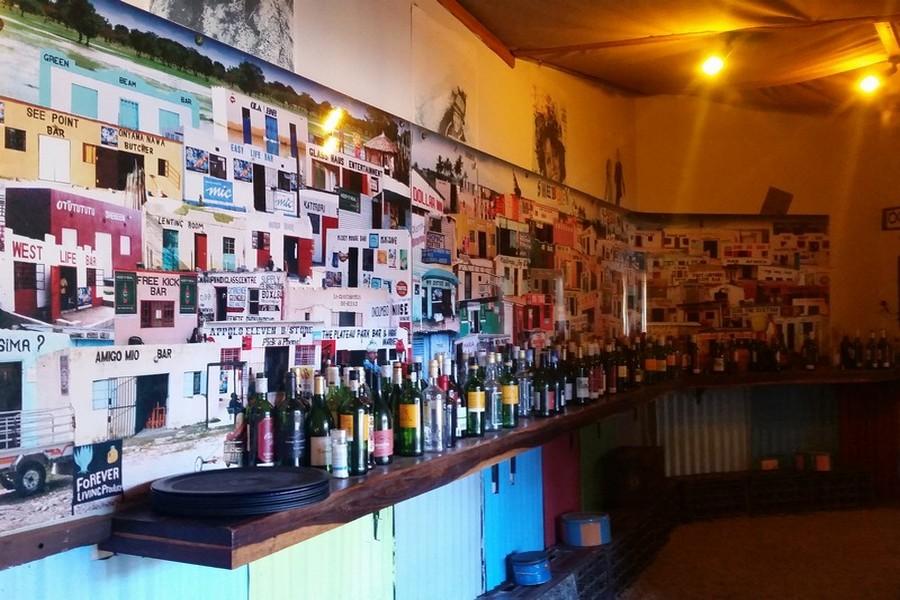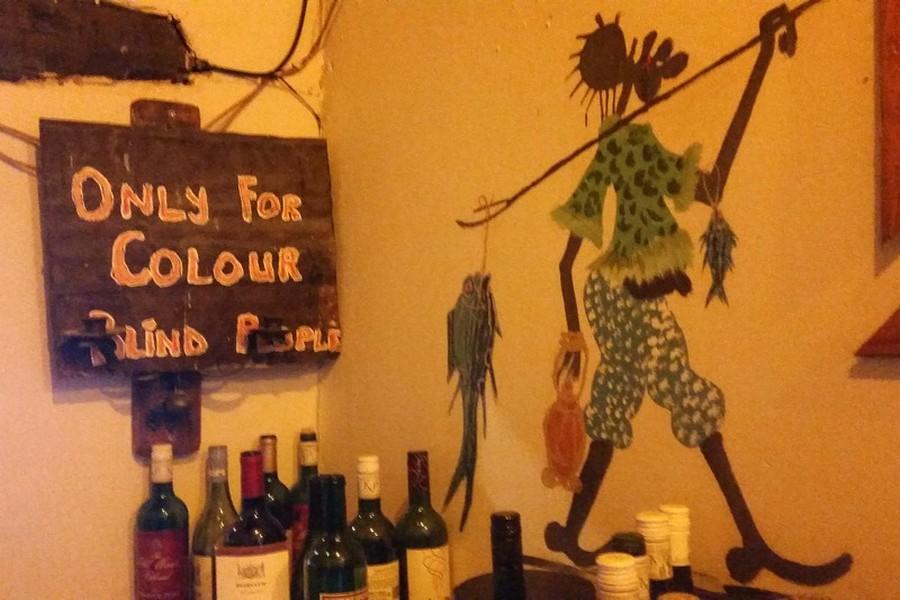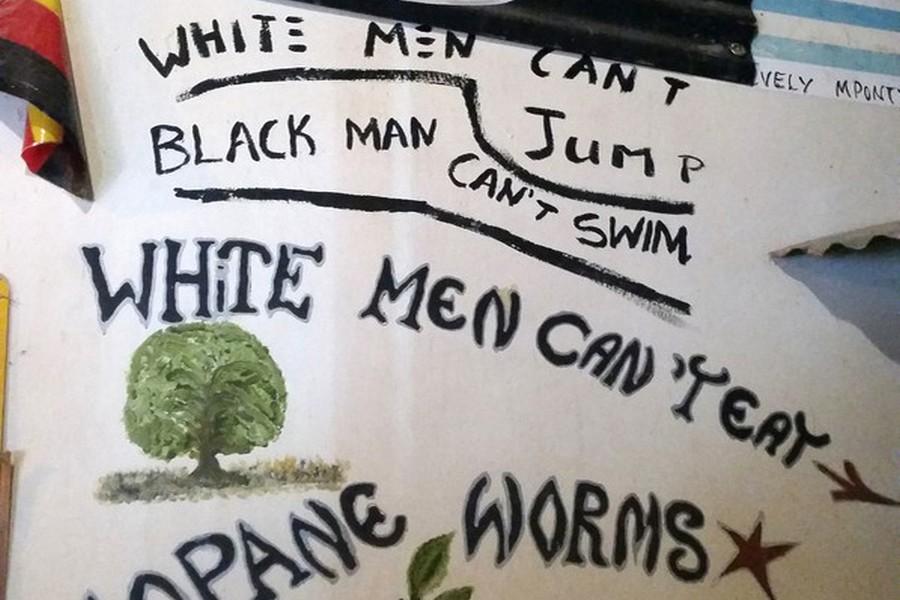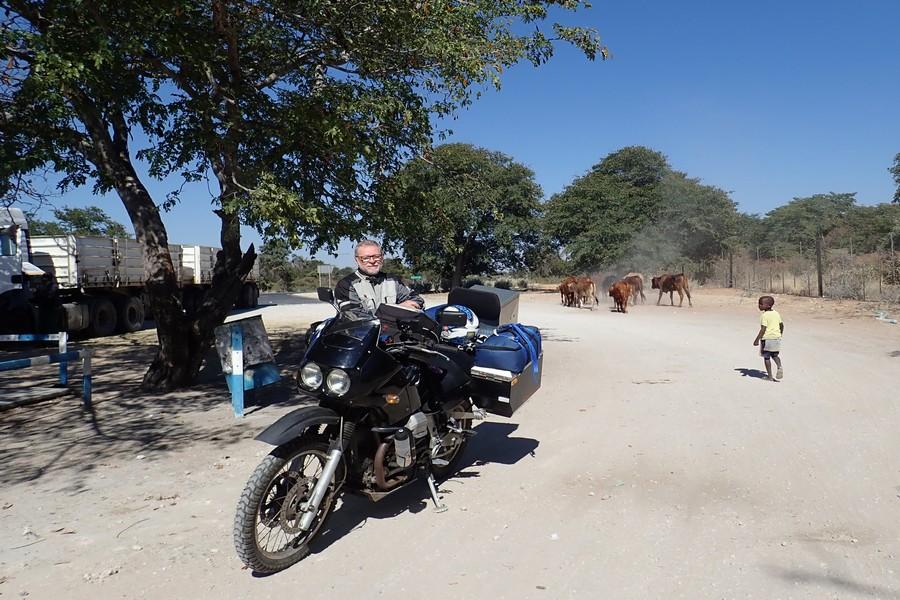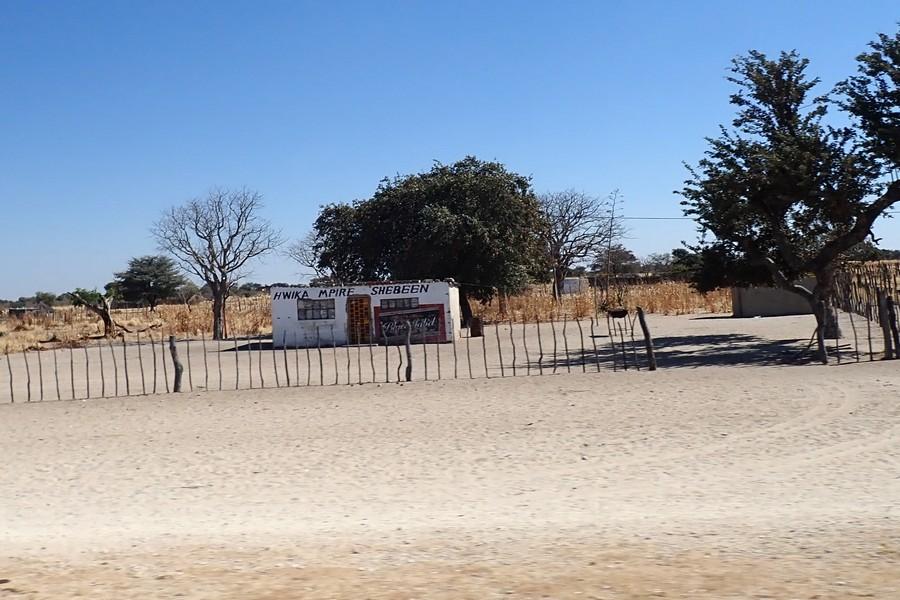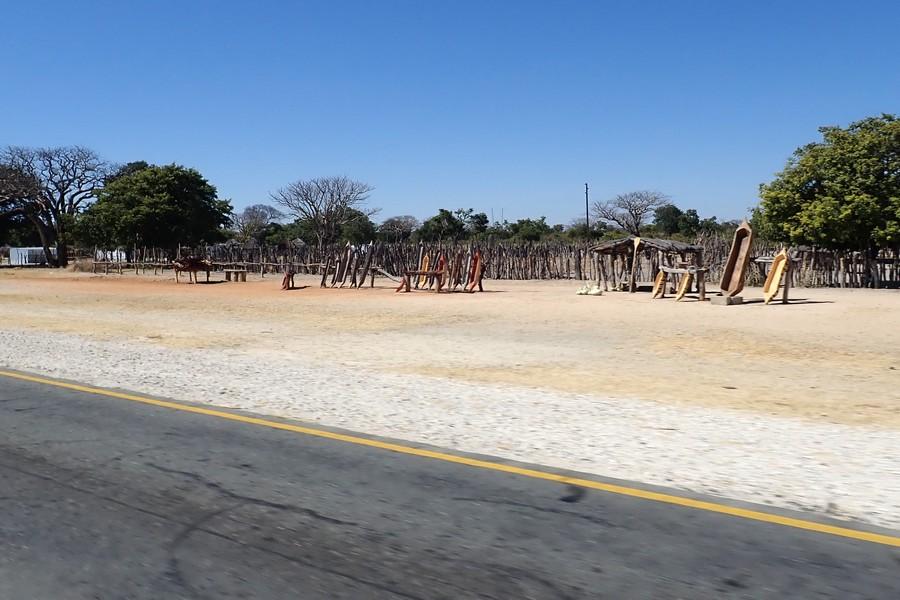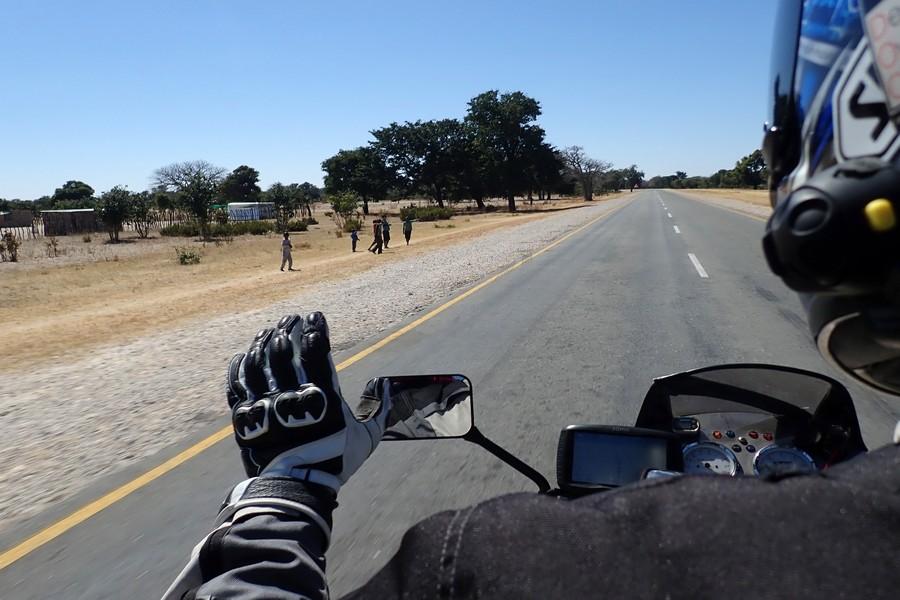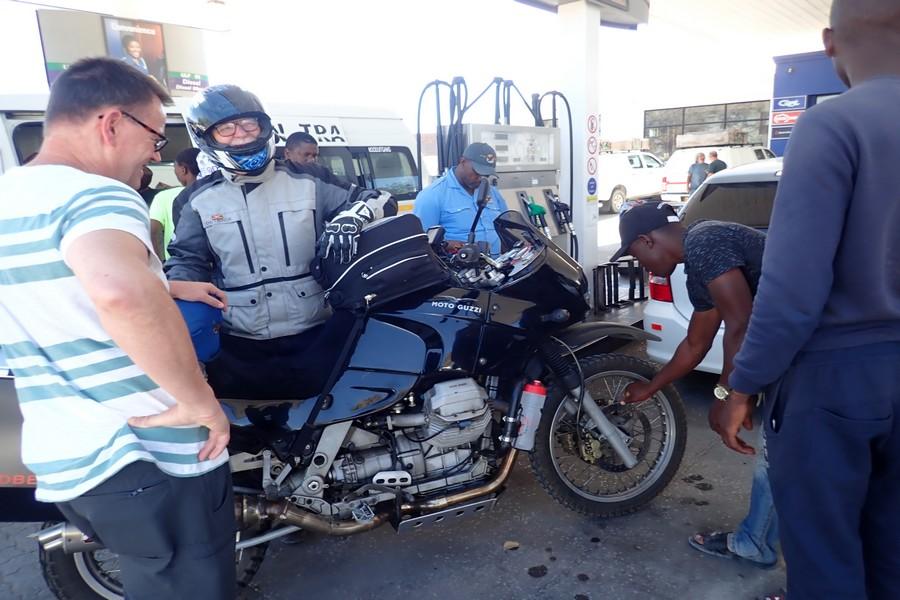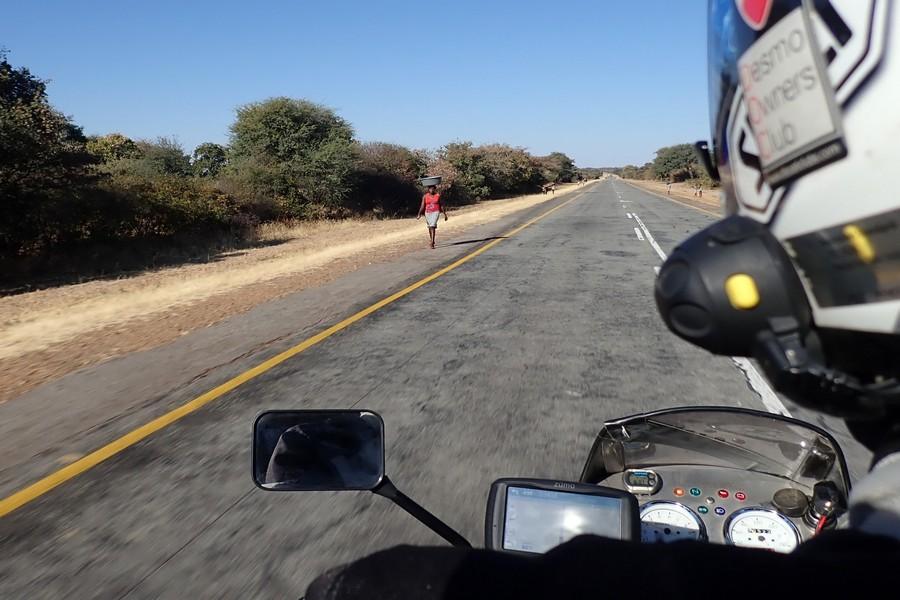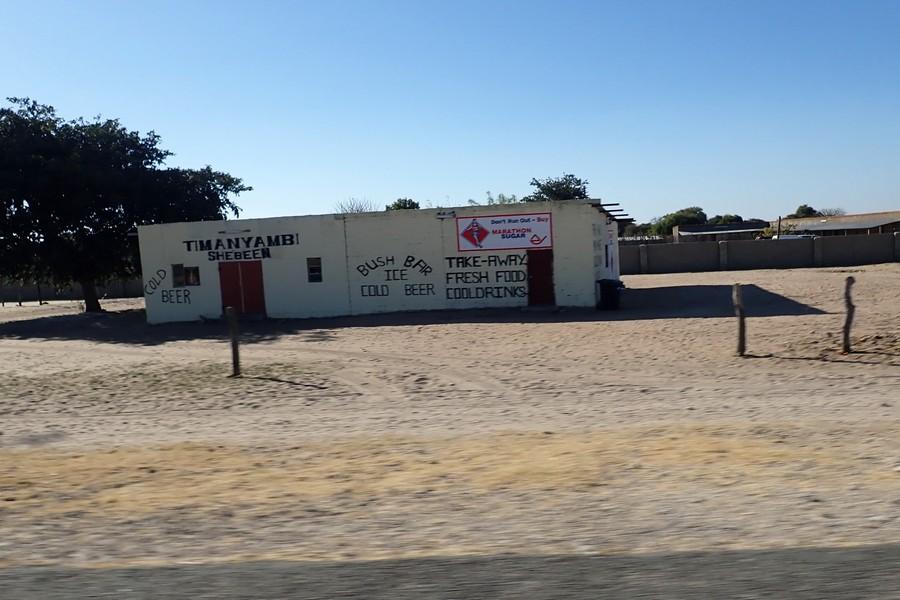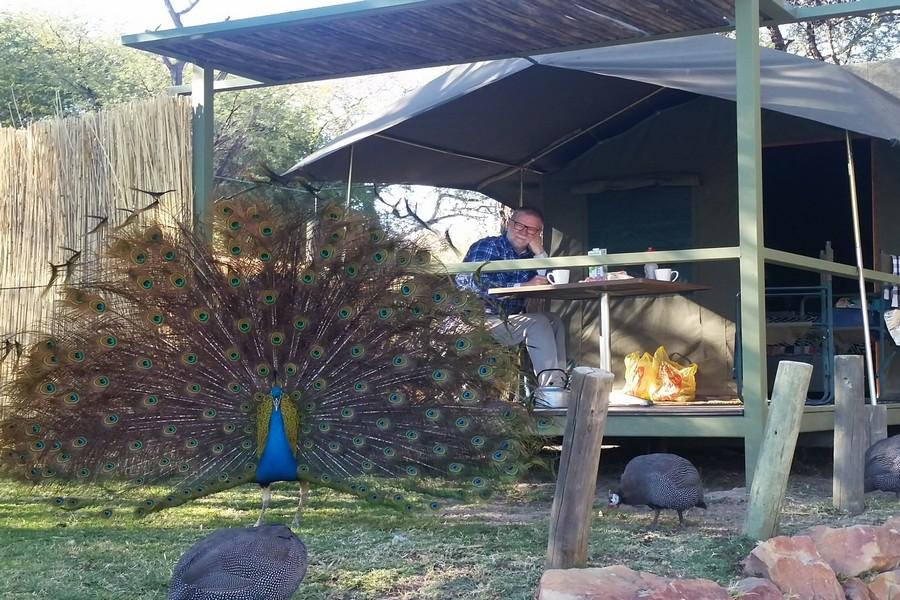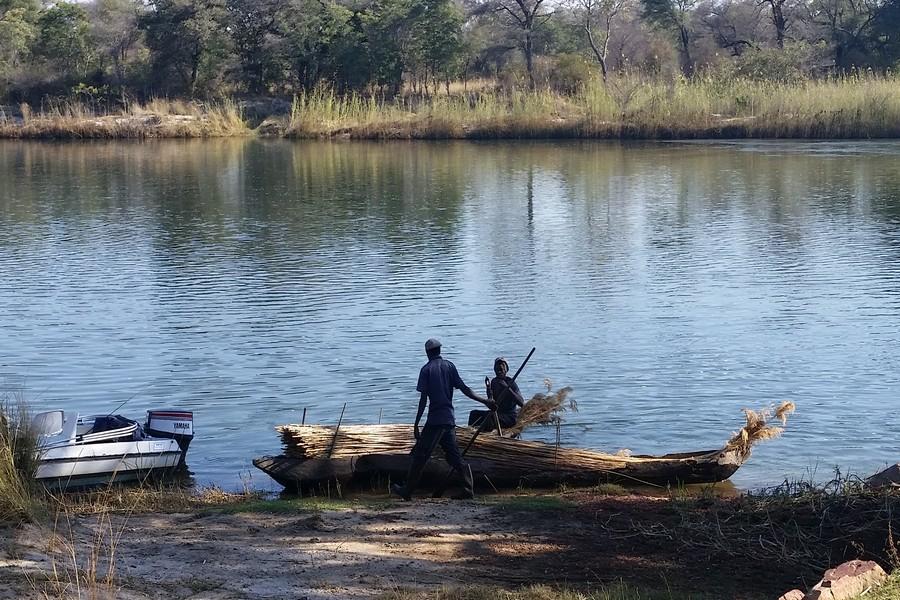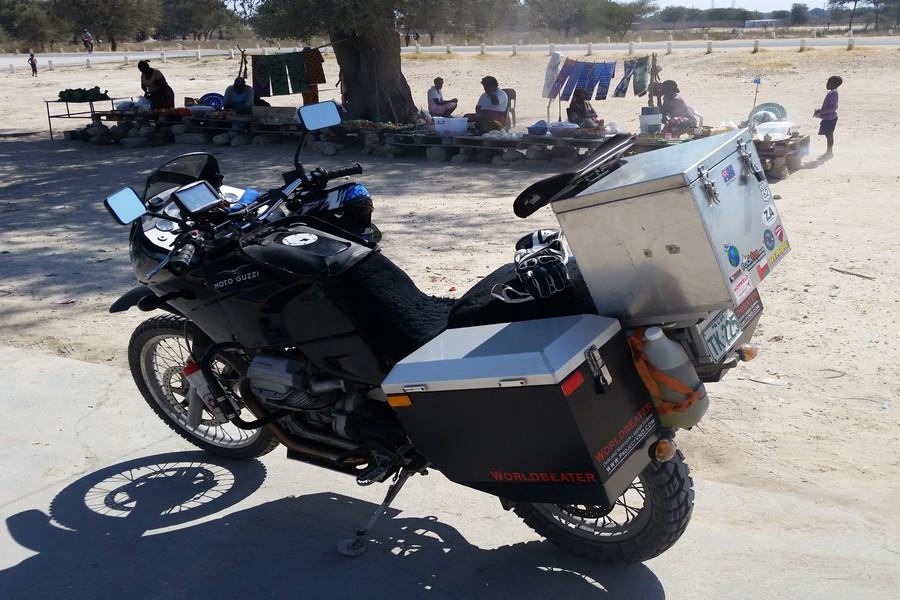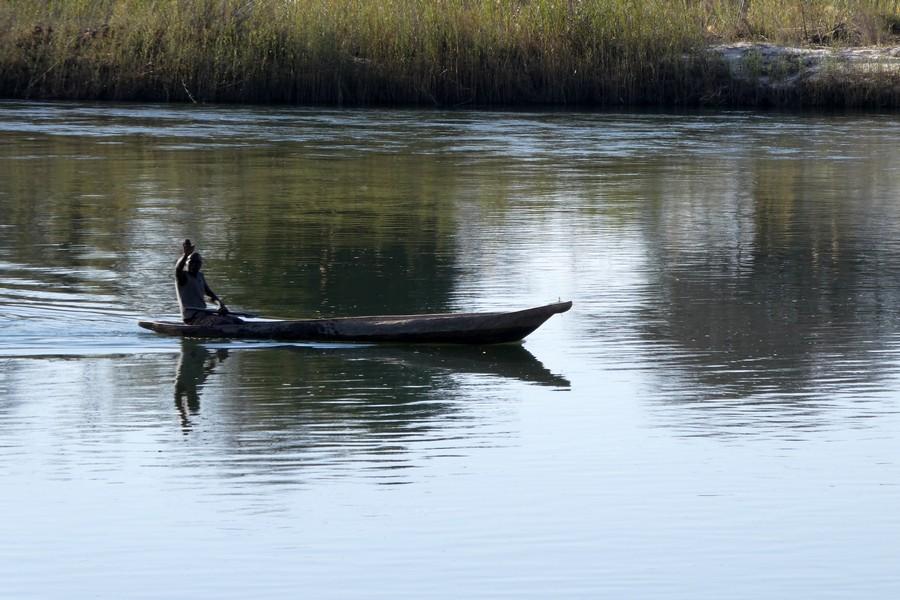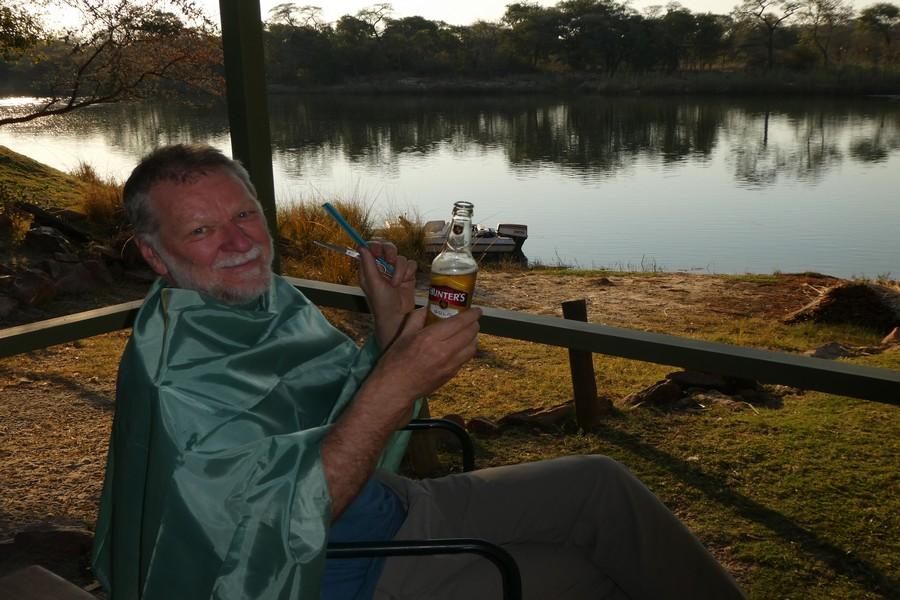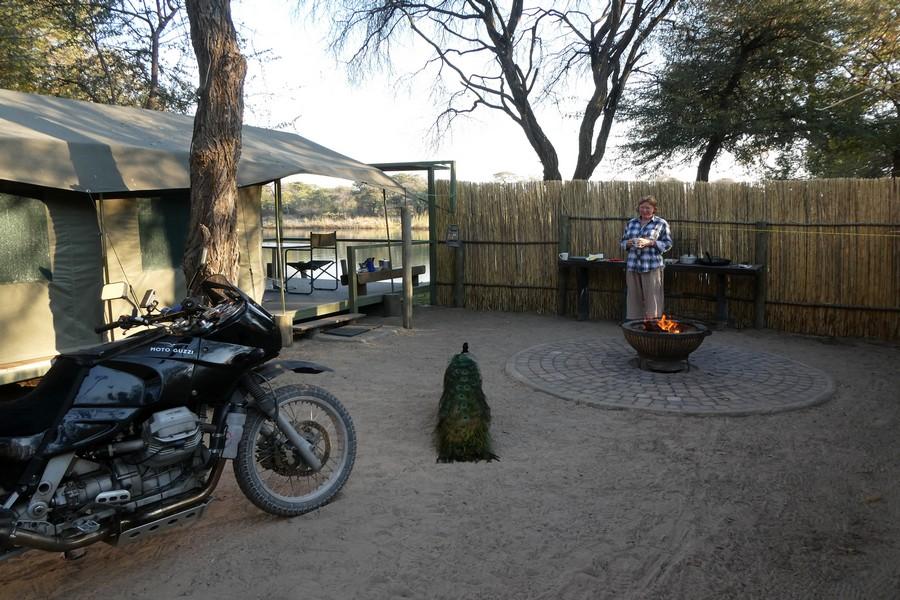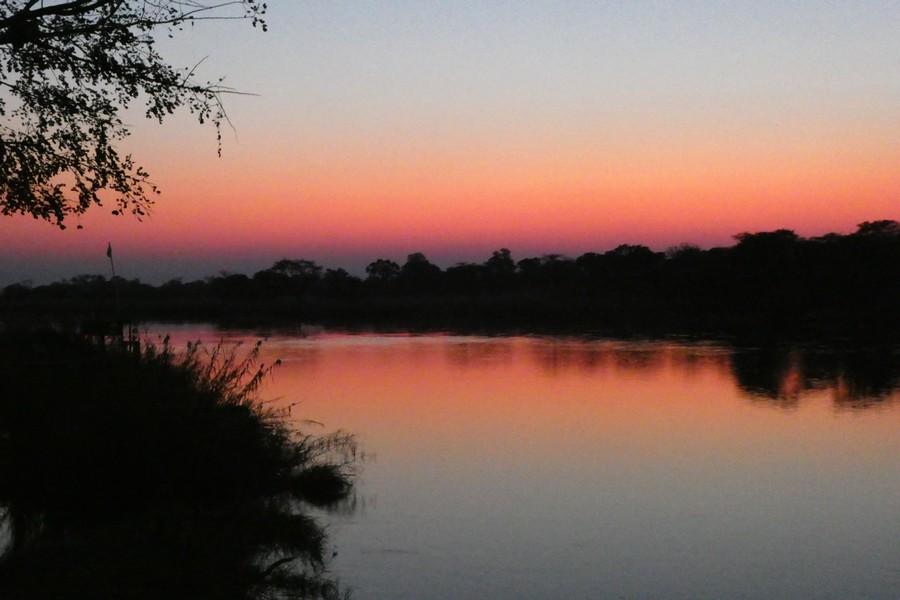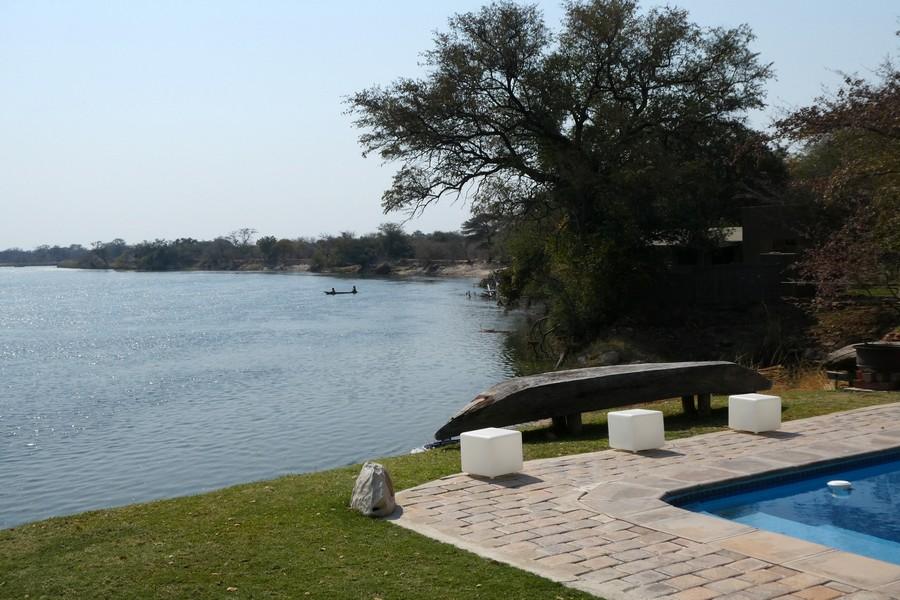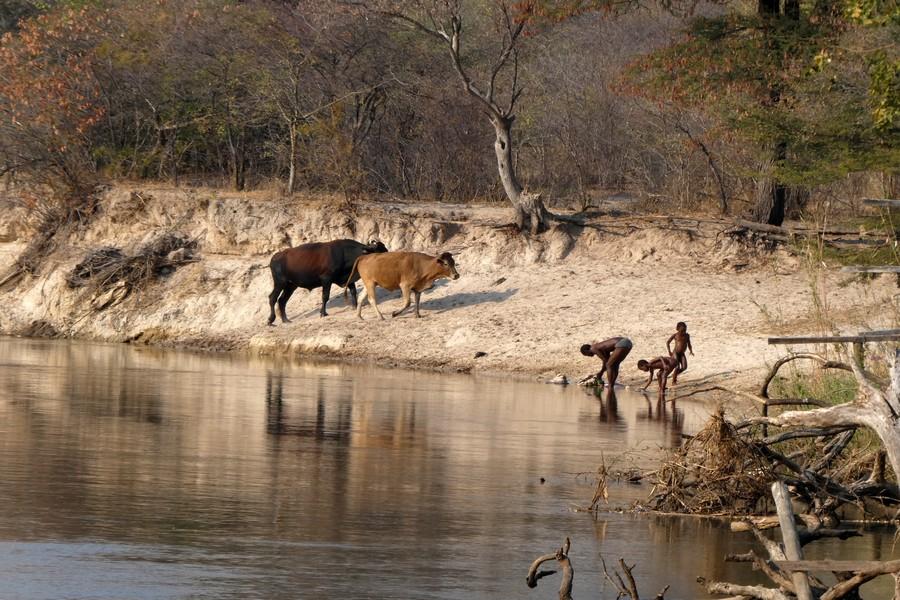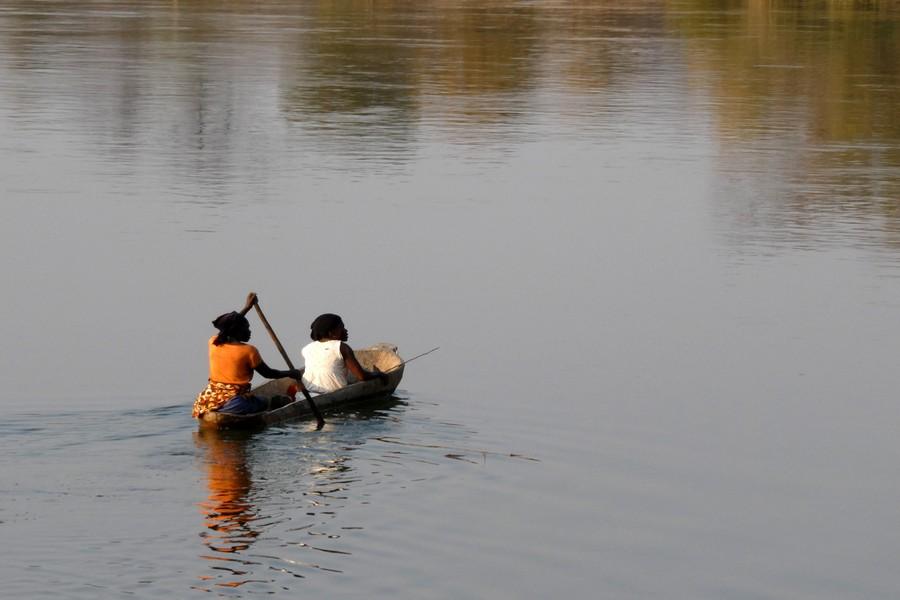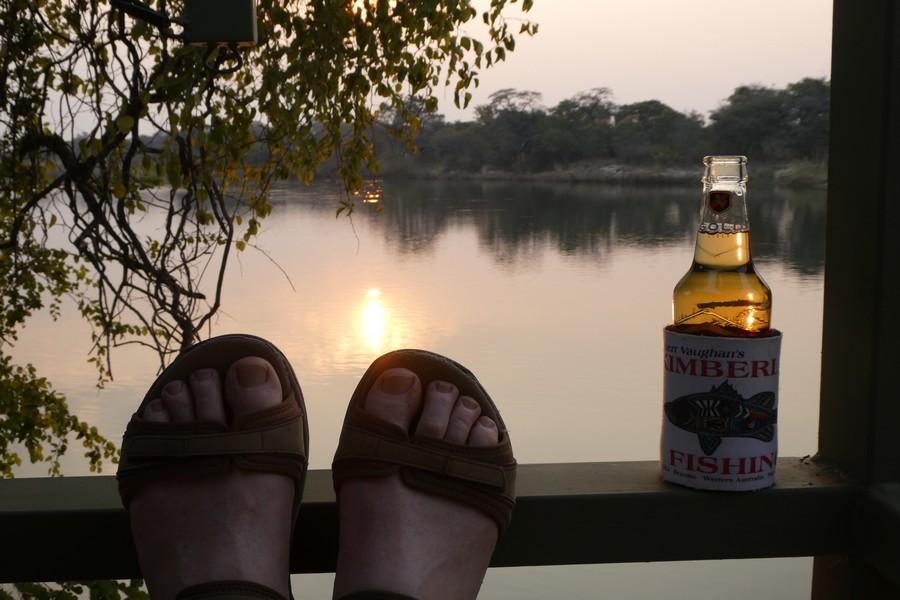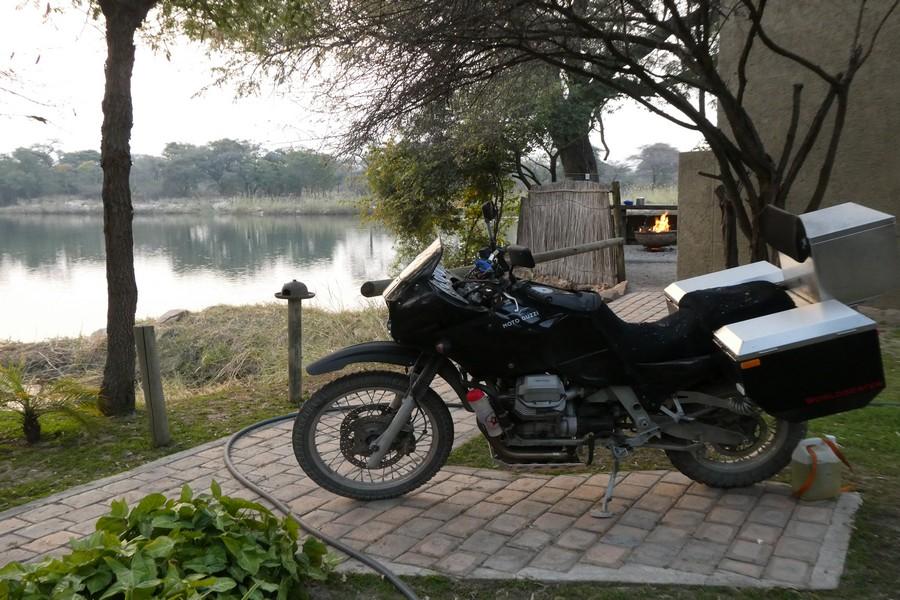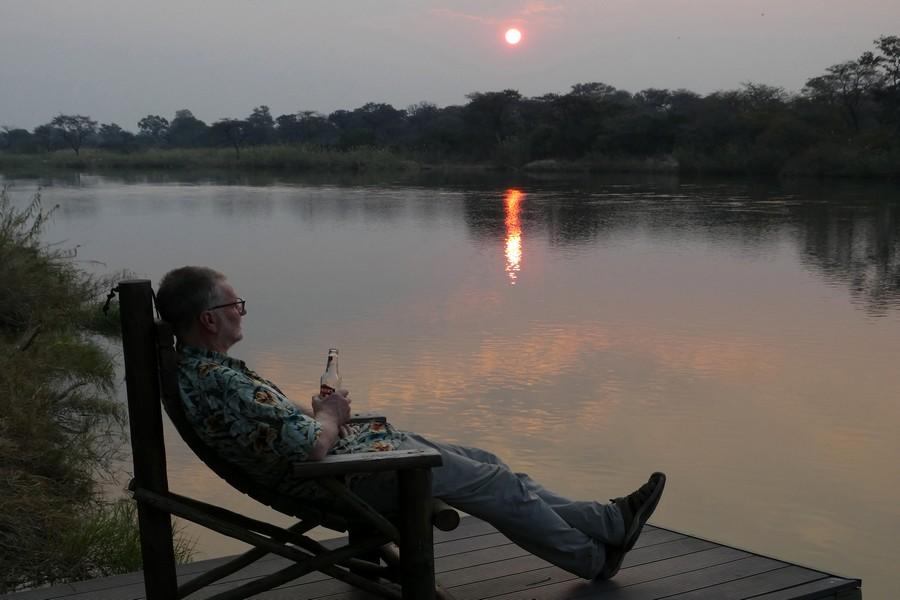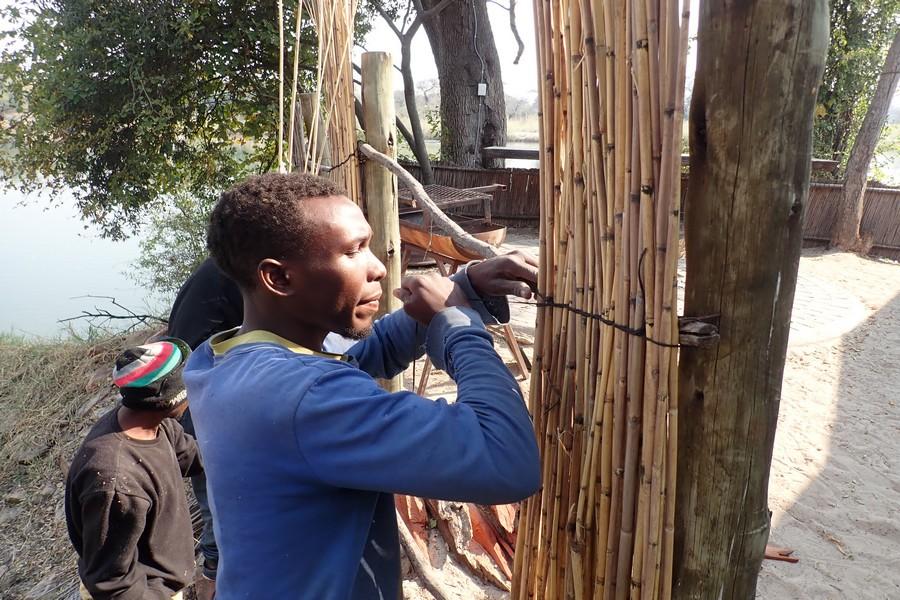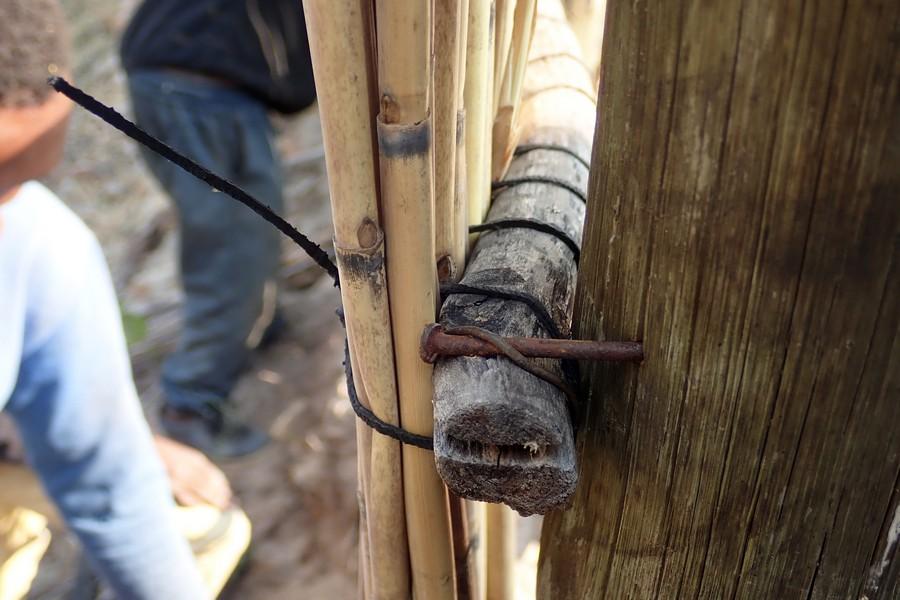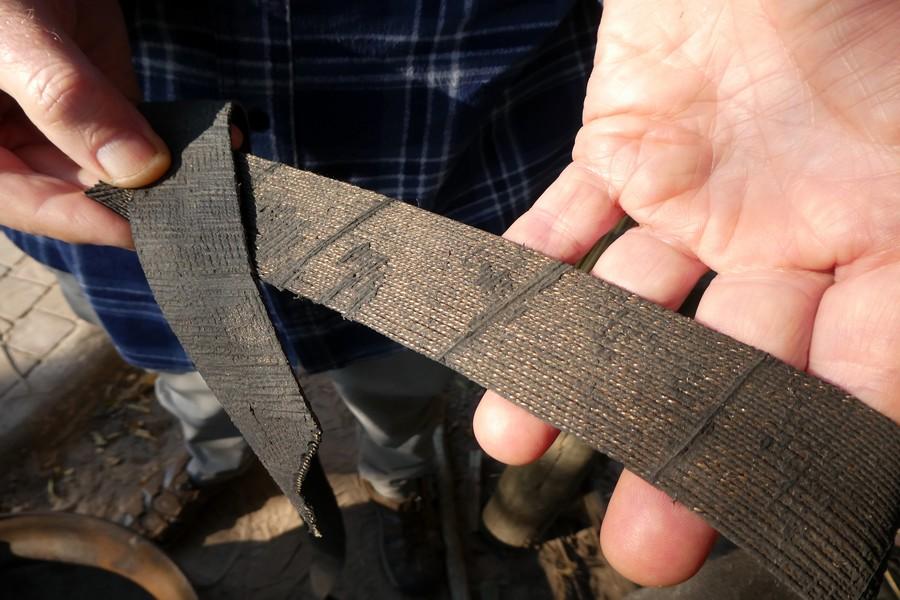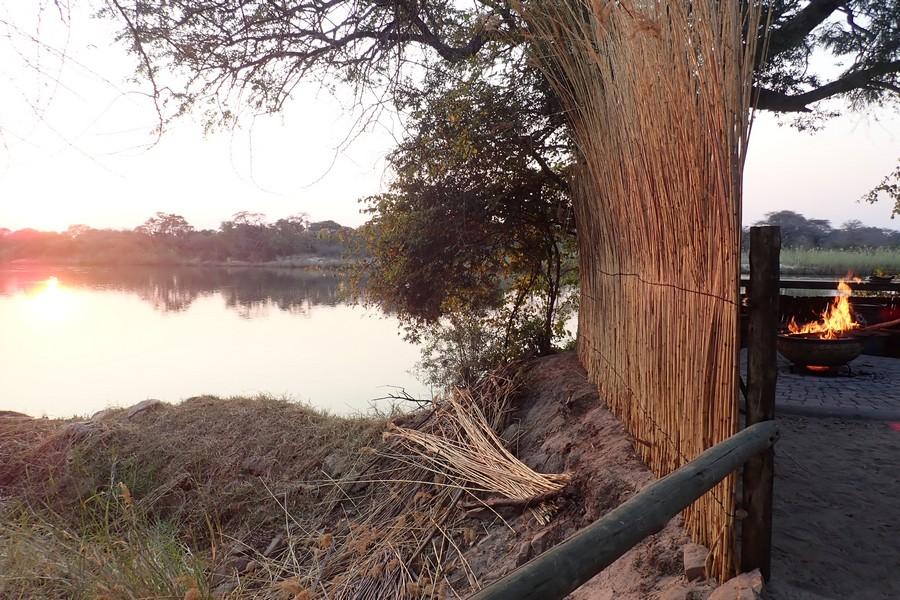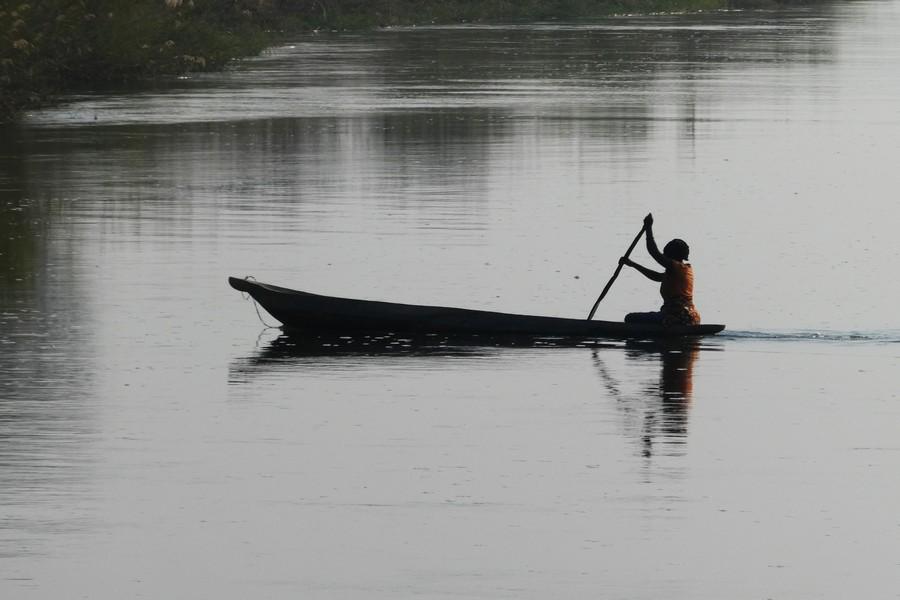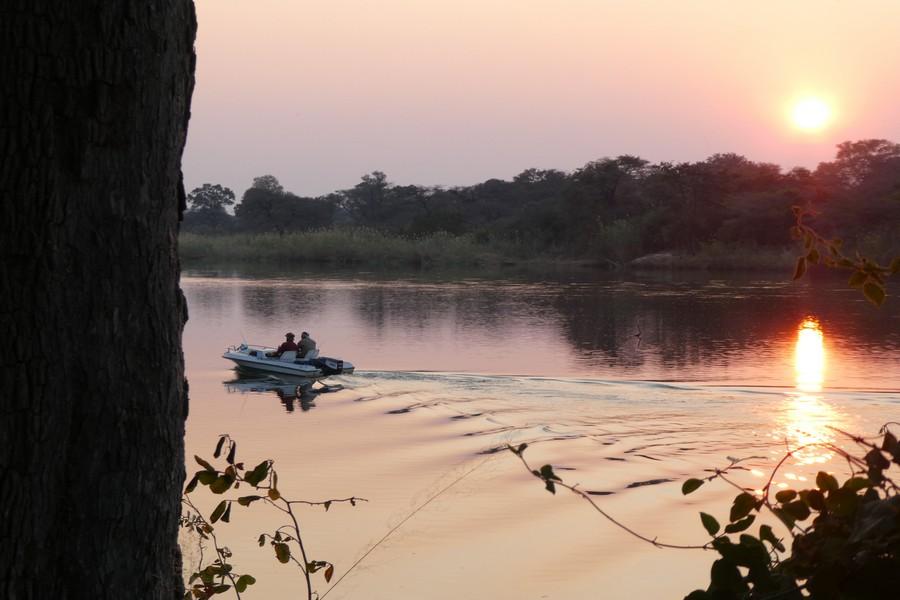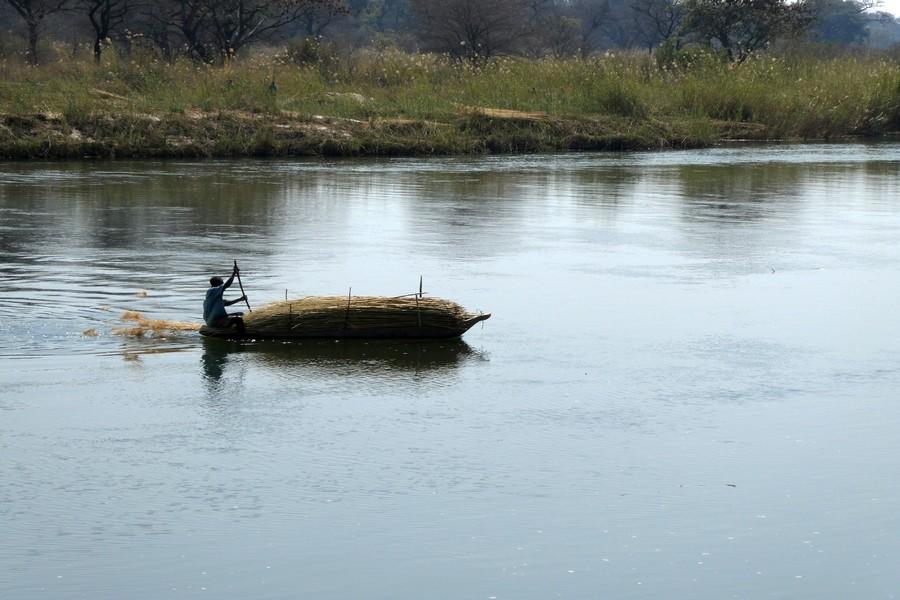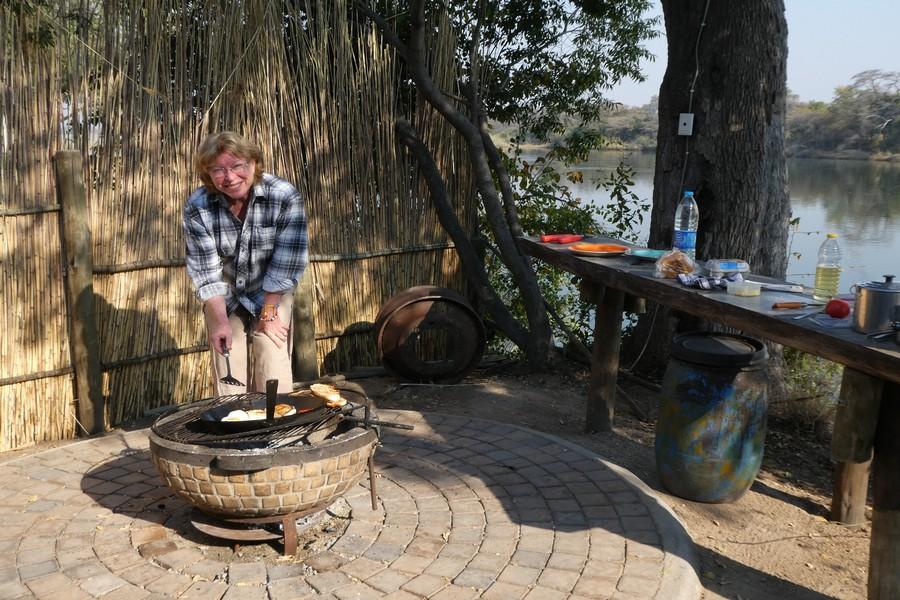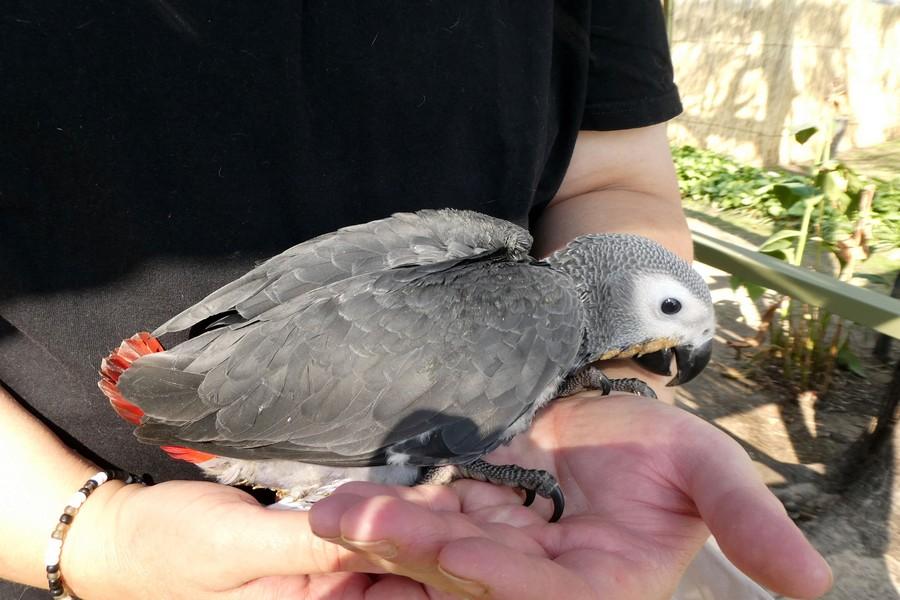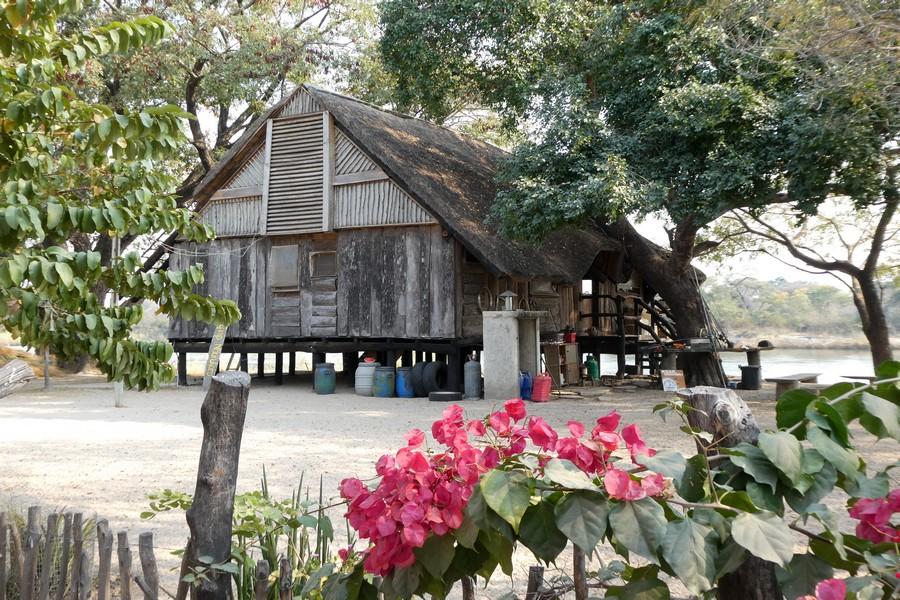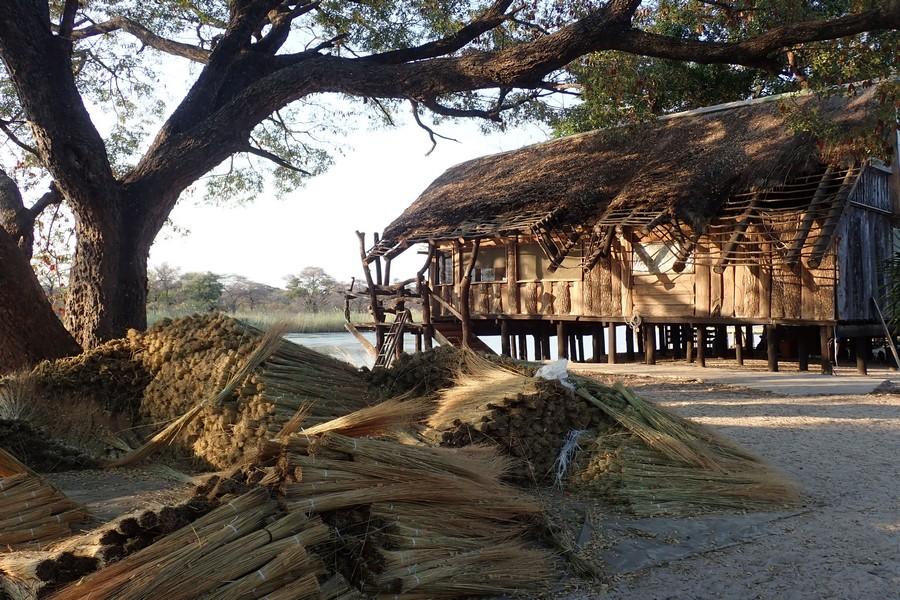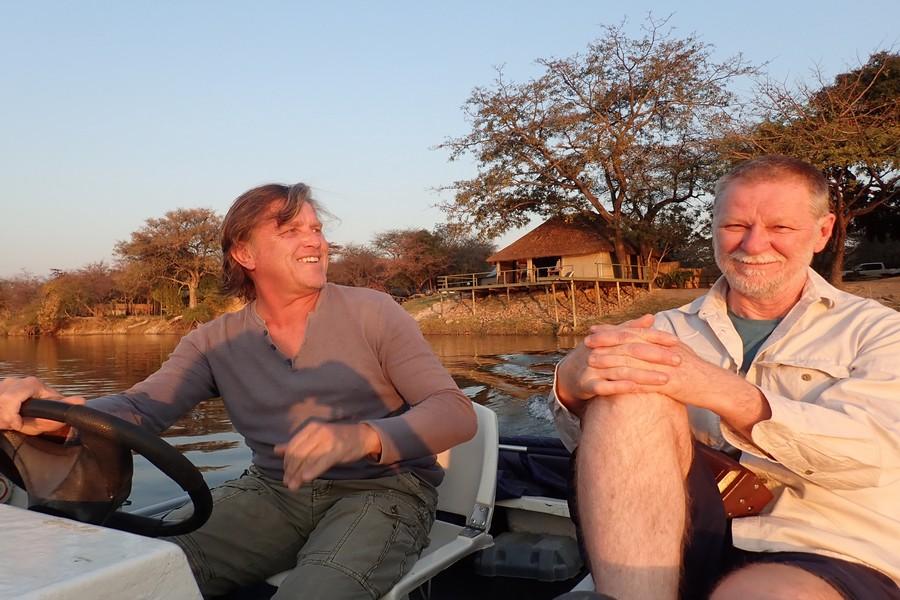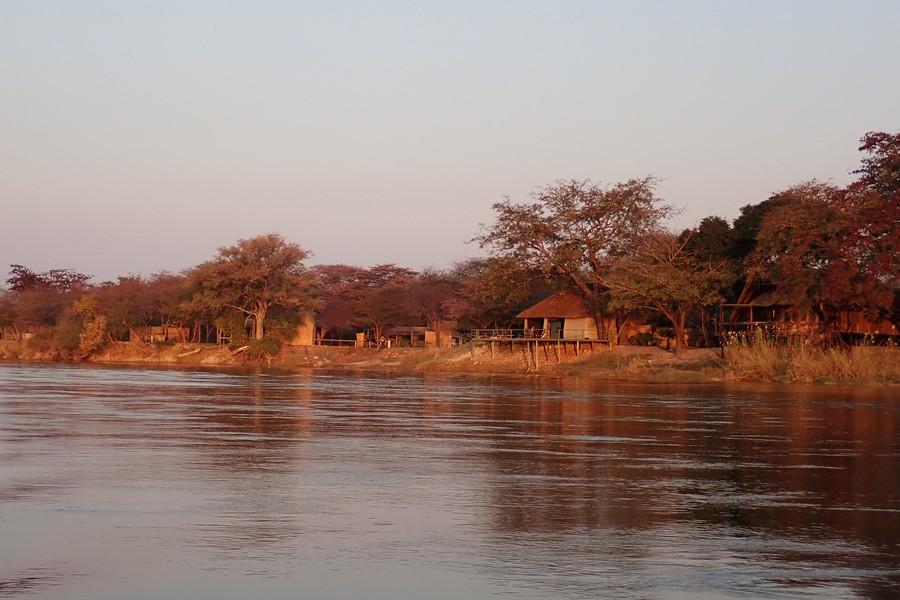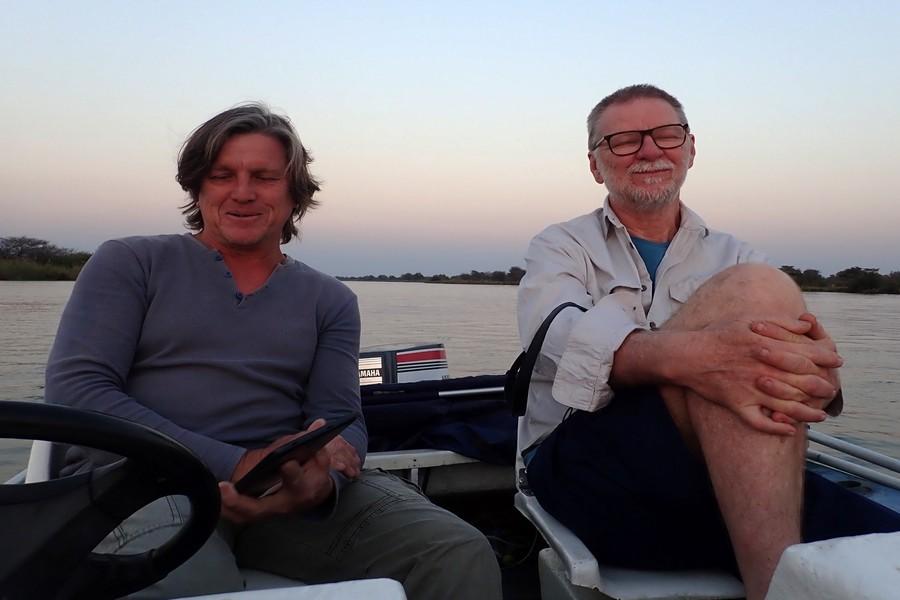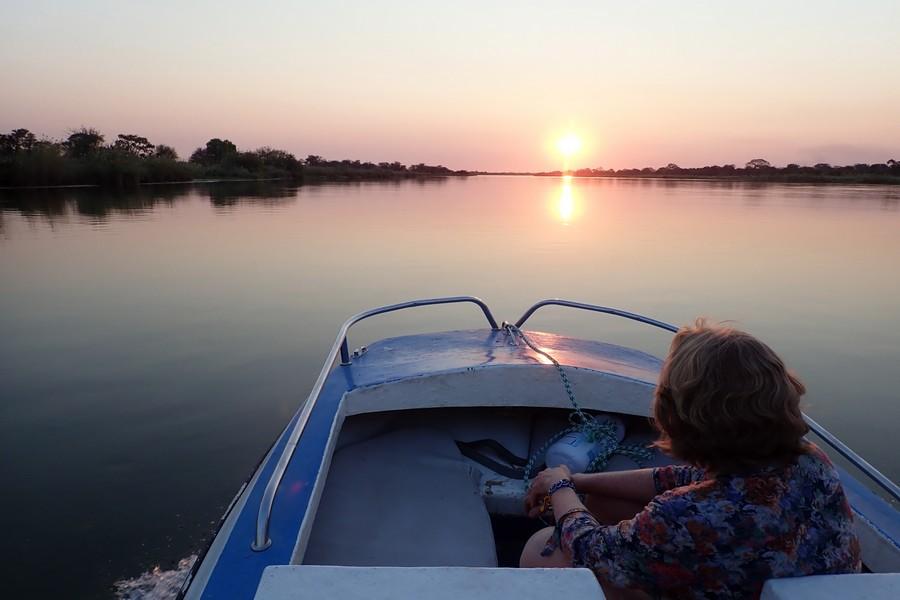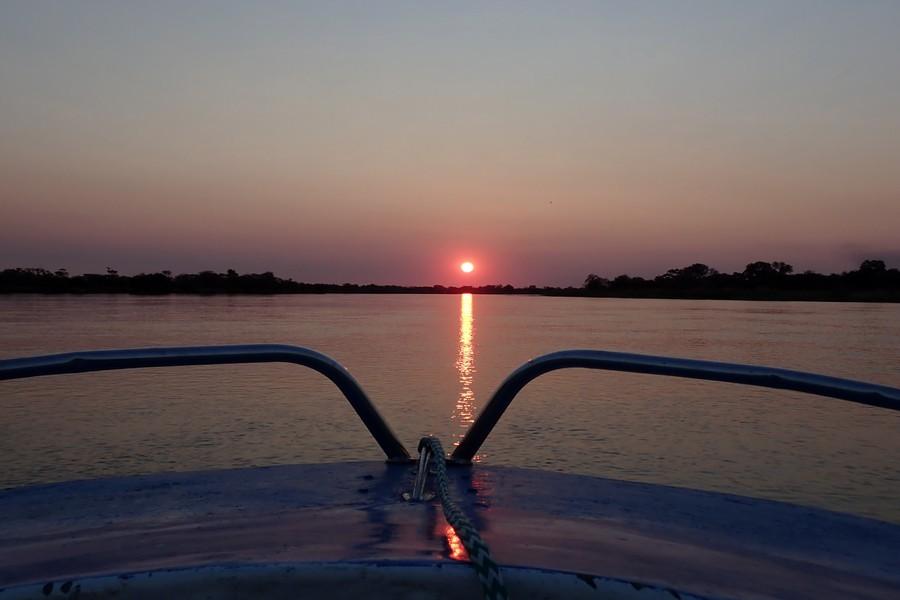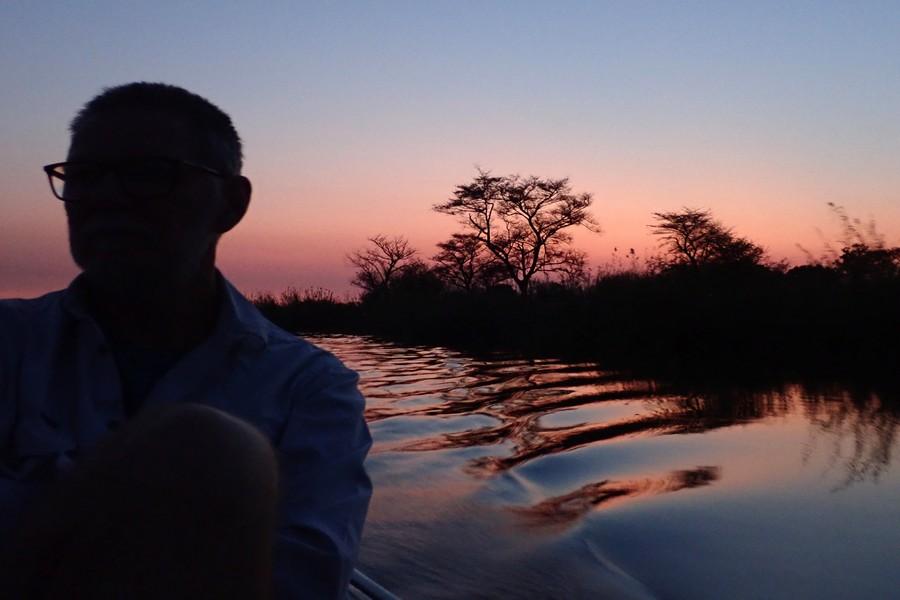How two days turned into twelve
Country
The road into Camp Ndurukoro Chalets & Camping was gravel. We had our hearts set on wasting time watching makoro (dug out local canoes) propelled along the river, sleeping in a tented chalet and firing up the barbie. Leon the owner had promised us the Guzzi would manage the 9kms of gravel…
Yay, we made it and instantly we knew that our two night reservation was not going to be long enough. The last 160kms of main road to get to Camp Ndurukoro was scattered with very neat, organised and colourful local villages. It is the season for cutting and drying reeds and grass, so all along the roads were stalls selling bundles of reeds for fencing and long grass for roof thatching. It seemed every village had its own shebeen complete with locals sitting out the front watching the world and strange looking tourists go by. Our hands got tired from waving back to all the kids seeing a Fury Road Interceptor for the first and probably the last time.
A shebeen is an African institution. Originally the term meant a small bar where alcoholic beverages were sold and consumed without a license. Under apartheid laws, black South Africans were not allowed into white bars. Private little rooms were established in townships next to the cities and beer, brewed with sugar and maize or traditional grain, was served. Some basic dishes were prepared, and music and dancing are added to the mix. The bars and counters were furnished with various recycled items which often contained witty graphics. These dwellings turned into cultural meeting places, and were an expression of identity and pride, and were often in defiance of blacks towards whites. Every now and then shebeens were raided by the police and shut down because they were suspected of being a meeting place of anti-apartheid activists. In 1969 the alcohol ban for Africans was relaxed. Some shebeens become registered, but many were not.
Two days turned into five, which turned into eight, which turned into twelve. Each decision required a 120km round trip into Divundu for supplies. Divundu is a small town consisting of two small grocery shops, a fuel filling station, three ATM’s that always seem to be broken, a liquor store, ladies selling food and trinkets, and further along the road, some pretty swank river lodges. As Camp Ndurukoro didn’t have wifi, we lunched, and wifi-ed at a swank lodge each change of decision. It was a pleasant diversion from lazing at the camp watching locals transport families, reeds and supplies via makoro, writing and sorting photos. The owner, Leon’s, own house needed a new thatched roof after 10 years. His place was looking somewhat dilapidated and he will soon need to move out whilst locals fix a new thatched roof. All the fresh grass has been tied and bundled in readiness. They said they would be here last Friday, then they said yesterday, now they are saying this coming Friday…Botswana beckons, so we won’t be holding our breaths!
Used car and truck tires come in handy. The linings are cut into strips to tie and carry reeds and grass. The strips are further separated along the wire lines to form the strand for tying off the fence and thatching material. As the strands contain rubber, when tied they remain securely in place. Our chalet fence was due for replacement, so it was interesting watching the new build process.
The winds relented around Erindi and Etosha, and we have now taken the thermal inner linings out of our motorcycle jackets. The mornings and evenings are balmy at 14 deg C, and the days are warm around 32-34 deg C. Quite perfect, I’d have to say.
For our last sunset at the Camp, Leon took us upriver in his boat. Pure magic! The weather was perfect, the setting sun was perfect, and the company, you guessed it, perfect. As we travelled upstream, Leon pointed out that Angola was on our right and Namibia on our left. We passed a makoro transit lane and were expecting to see all manner of things being transported, but they must have taken an evening off. When Leon cut the motor and we started drifting back downstream, the chatter and activity of local village life was heard all along the river banks. Wow, what a fabulous end to our stay at Leon’s Camp on the Kavango River. Remember what I said about Namibians?
We will make our second African border crossing from Namibia into Botwana this coming Monday (13 August) and plan on basing ourselves in Kasane in order to venture into the Chobe National Park…

